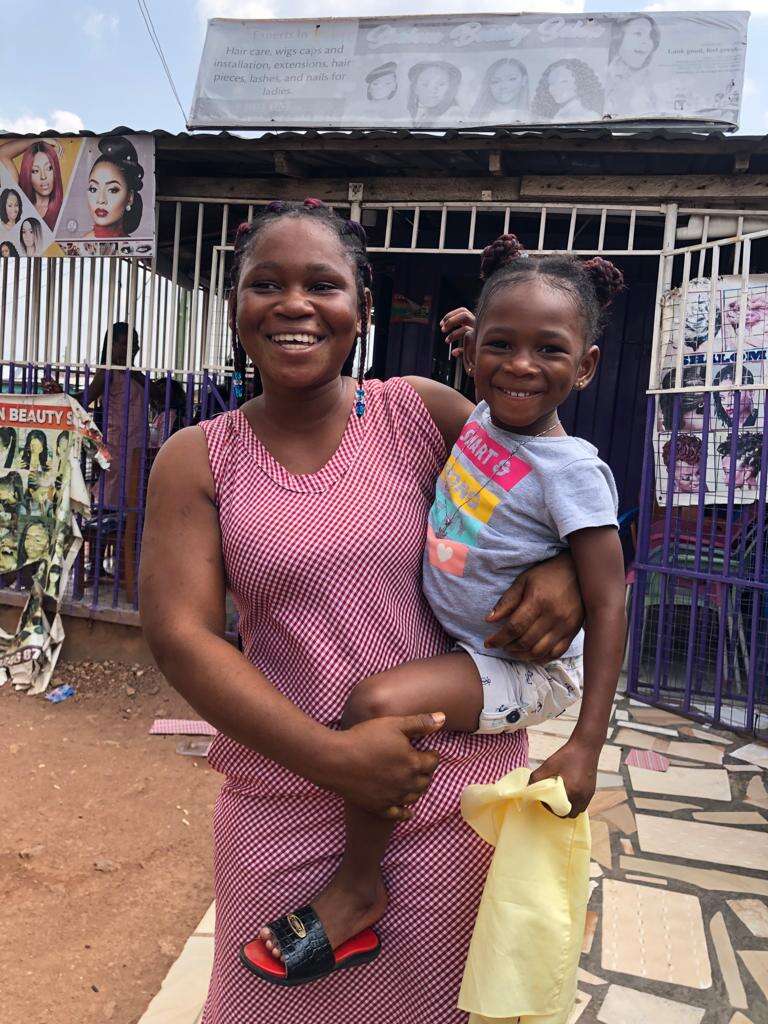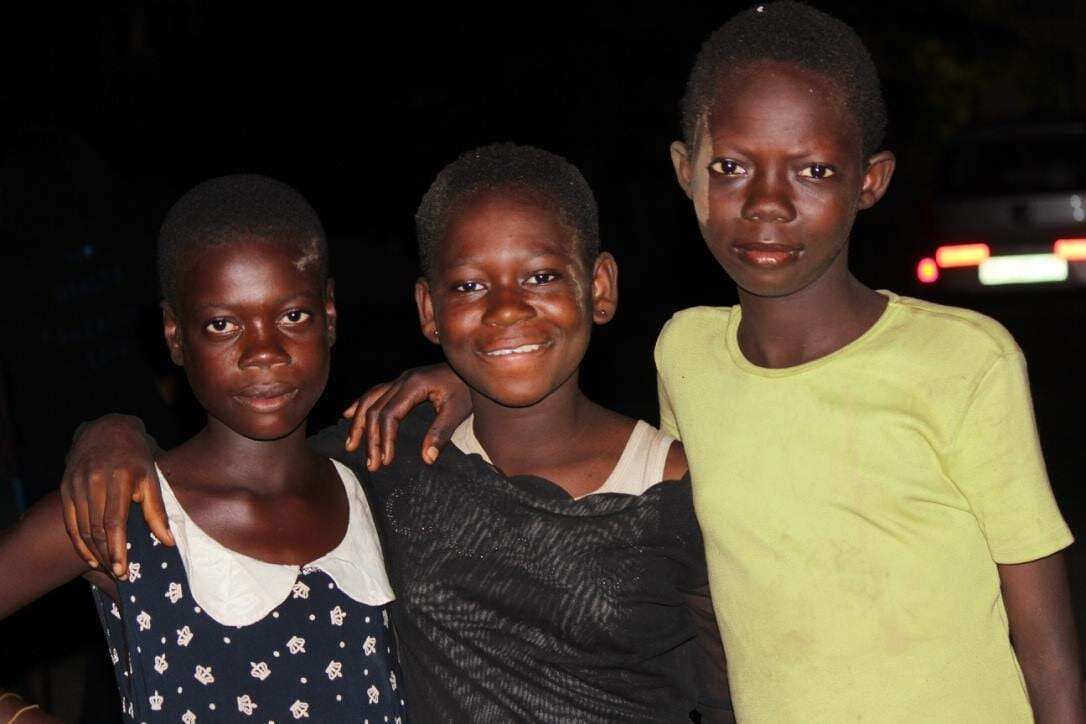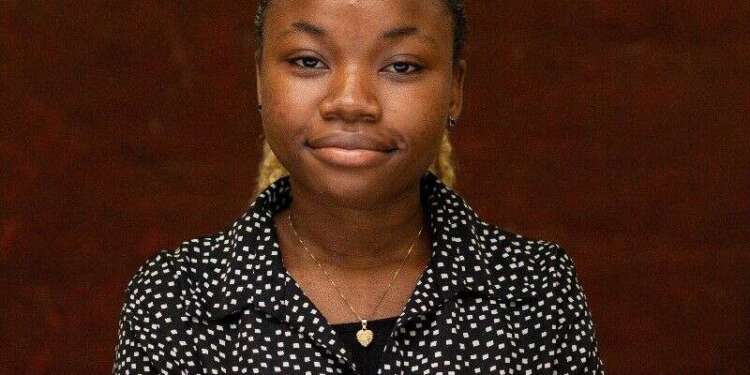“Wagyimi, what is wrong with you? Who asked you to clean the car’s windscreen? Will you get away from here?” These were the relentless voices Joyce encountered daily as she struggled to make ends meet. Reminiscent of the day she left home, fleeing the burdens thrust upon her by fate, Joyce’s journey from Agomanya, Somanya, to the bustling streets of Accra was fueled by hope and desperation in equal measure. With her father’s passing leaving her mother to fend for their five children, Joyce took it upon herself to contribute to their survival. Selling pure water in their village offered meager sustenance, but the promise of prosperity whispered by Accra beckoned like a siren’s call.
Accompanied by a friend, Joyce embarked on the arduous journey to the city, securing a free ride from a tro tro driver. The allure of Accra, the proverbial land of milk and honey, seemed within reach. However, the harsh reality of street life soon shattered her illusions. At the tender age of ten, Joyce found herself grappling with the harsh realities of survival on the unforgiving streets of Accra. Barely able to scrape together enough to feed herself, shelter became a luxury beyond her reach. Nights were spent exposed to the elements, seeking refuge wherever the shadows would offer solace.

Exploitation lurked around every corner, with taxi and tro tro drivers, as well as older boys and men, preying on her vulnerability. Desperate for survival, Joy reluctantly turned to selling intimacy, a grim transaction borne out of necessity rather than choice. Yet, amidst the darkness, a glimmer of hope emerged in the form of Future Of Africa (FOA).
FOA is a Ghanaian non-profit organization that assists young girls and boys living on the streets while also mentoring university students to become future African leaders. They rescue children from the streets and provide rehabilitation, job training, and assistance. Their objective is to help African youth break the cycle of poverty by instilling hope, character, and skills. FOA extended a lifeline to Joyce, offering to lift her from the abyss of destitution and guide her towards a brighter future. However, familial responsibilities weighed heavily on her shoulders, with her ailing mother relying on her support. Despite the genuine offer of assistance, Joy remained ensnared in the vicious cycle of poverty and exploitation, unable to break free.
Joyce’s story is emblematic of the plight faced by thousands of street children in the Greater Accra region. According to the United Nations, nearly 61,492 individuals under the age of 18 are engaged in street work, with a significant majority living directly on the streets. Despite these staggering statistics, their suffering often goes unnoticed, relegated to the periphery of societal consciousness.
The prevailing narrative surrounding street children is one marred by misconceptions and stigma. Society’s reluctance to confront their plight, instead opting to scapegoat them for broader societal insecurities, only exacerbates their suffering. Rather than extending a helping hand, they are cast aside and marginalized, denied the opportunity to realize their full potential.

The philosophy of Ubuntu underscores the collective responsibility of communities in nurturing and protecting vulnerable children. By embracing this ethos, we can create a supportive environment that fosters empathy and solidarity, offering these children the security and opportunity they deserve.
As a nation, it is imperative that we unite in support of organizations like FOA. Through volunteerism and financial contributions, we can empower them to continue their vital work. Joyce’s transformation from a street dweller to a skilled hair braider serves as a testament to the efficacy of such interventions. Her newfound skills not only provide her with a source of income but also instill in her a sense of hope for the future.
Volunteers who have engaged with FOA attest to the resilience and warmth exhibited by these children. Their experiences underscore the importance of lending a compassionate ear and offering unwavering support to those in need.
Often, many individuals may feel if they do not have a lot of money to donate, their ability to make a difference is limited. However, the reality is quite different. As one volunteer wisely noted, sometimes all it takes to support these vulnerable children is a listening ear. Having experienced abuse and exploitation, these children often crave human interaction as a means of healing. Volunteering offers a crucial avenue for providing this much-needed support.
The impact of volunteering is often underestimated. It’s not just about the time and effort volunteers contribute, but also about the profound emotional connection and understanding they offer to these children. Through compassionate interaction, volunteers can help rebuild trust, restore confidence, and provide a sense of safety for these young individuals who have faced unimaginable hardships.
Moreover, the collective effort of volunteers is instrumental in addressing the root causes of this problem. By volunteering their time and expertise, individuals can contribute to initiatives that provide long-term solutions, such as advocacy, education, and community support programs.
Ultimately, the more people who volunteer their time and effort, the greater the impact in addressing this pressing issue. Each volunteer brings unique skills, experiences, and perspectives, enriching the support network available to these children. By coming together as a community of volunteers, we have the power to drive significant change and pave the way for a brighter future for these vulnerable children
In conclusion, the plight of street children demands urgent attention and collective action. By embracing the principles of Ubuntu and extending a helping hand to organizations like FOA, we can pave the way for a brighter future for these vulnerable youth. It is through our solidarity and compassion that we can rewrite the narrative of despair, offering hope and opportunity where there was once only darkness.






